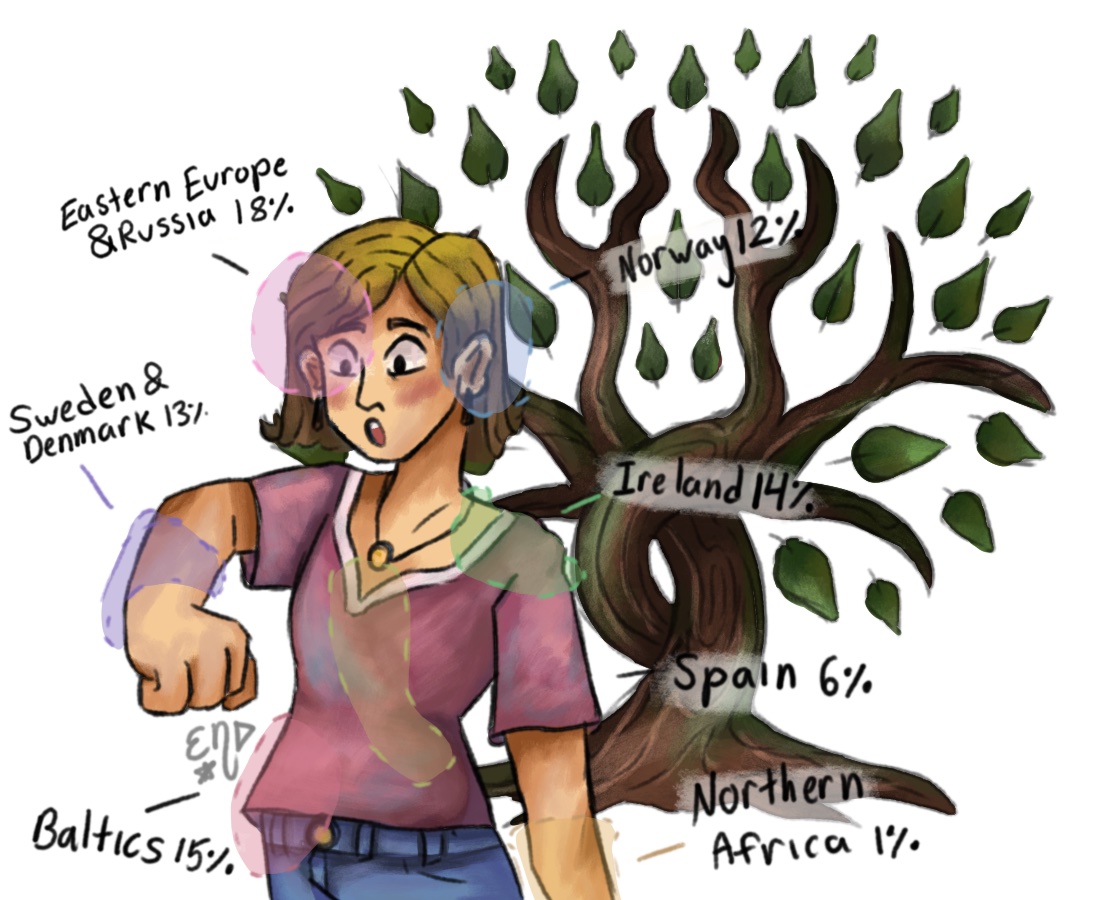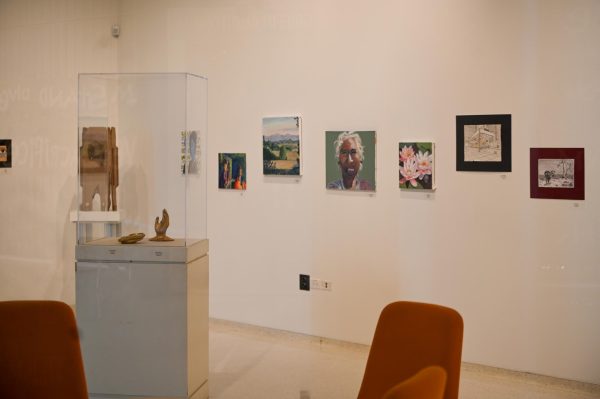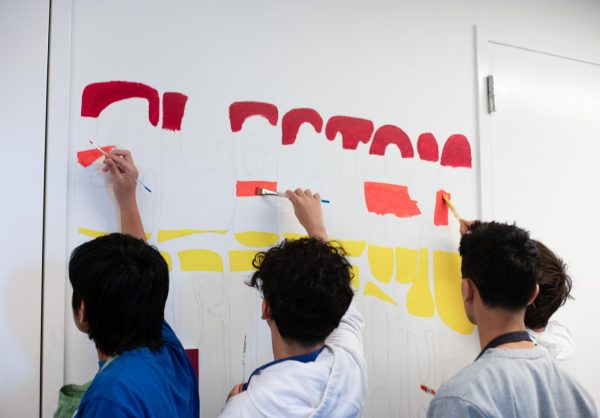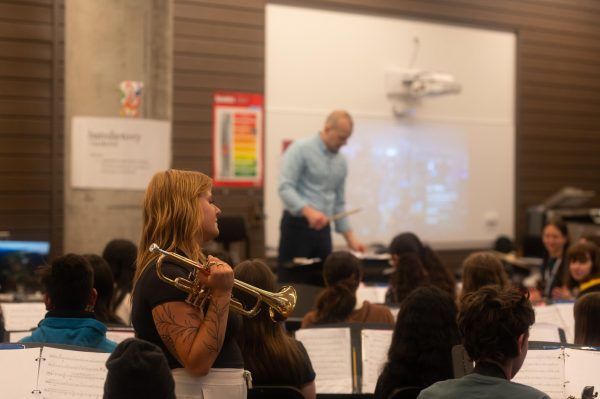Maja Teref: English teacher brings passion, experience in literary translation to Lab
April 20, 2021
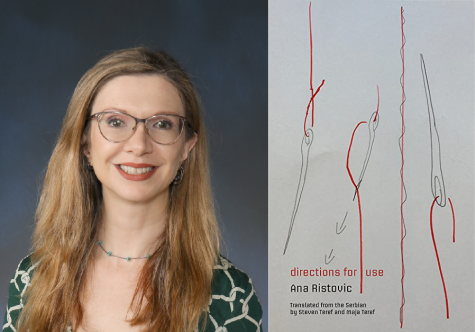
Only about an estimated 3% of world language literature gets translated into English: a number well-known in literary translation circles as the “three percent problem.”
Students of English teacher Maja Teref, a longtime literary translator, may recognize this statistic and recall how her eyes light up with excitement as she incorporates the disparity into her hard sell on why they should begin translating.
Through her work in and outside of Lab, Ms. Teref is working to broaden the field of literary translation by sharing the passion for translation she found as a student with her own students.
Ms. Teref was first introduced to translation in the former Yugoslavia as part of her coursework majoring in Language and Literature in high school. But her first real experience in translation came after majoring in English in college. Ms. Teref worked as a translator in the English department at Radio Yugoslavia, where she also DJed her own music show in English.
On coming to the United States to do her graduate work in Applied Linguistics at the University of Illinois at Chicago, Ms. Teref met Steven Teref, a poet, linguist and editor who would become her husband. The two soon began translating poetry from BSC (Bosnian Serbian Croatian) together.
The duo’s work soon began to draw attention. Their second project, a collection of translated works by Serbian poet Ana Ristović titled “Directions for Use,” may be familiar to students who have taken Literary Analysis.
Although some of Ms. Teref’s colleagues initially expressed concerns over Ristcović’s writings portraying outdated feminism, one poem in particular, “Snow in Your Shoes,” started drawing attention to the collection.
“We were about to abandon the project when ‘Snow in Your Shoes’ was picked up by The New Yorker,” Ms. Teref said. “And then our other translations of her work were shortlisted for the National Book Circle Award and some other big awards. I mean, we really hit it big with her.”
On arriving at Lab four years ago, Ms. Teref was surprised to find a hole in the curriculum: the school had few opportunities for students to discover literary translation.
“We’re a STEM school, but we need our students to be more well-rounded, right? So you cannot be a one-trick pony,” Ms. Teref said. “You need to develop your mind in all kinds of different ways.”
Ms. Teref decided to change that. She founded Ouroboros Review, a student-run literary translation journal named after the endless cycle of translating and revising. The first edition of Ouroboros Review included nearly 100 translations from a wide range of students.
According to Ms. Teref, the members of the Ouroboros Review even continued pursuing literary translation this past summer, meeting weekly on a consistent basis.
Over the past year, Ms. Teref and the Ouroboros Review team have been working hard, aided by the University of Chicago’s new literary translation department, to put out the second issue, which is set to publish in May.
“The students who are part of the club are learning so much about word choices through translation, how to play with language, how to express themselves,” Ms. Teref said.
Guided by her considerable experience in the field, Ms. Teref mentors the next generation of literary translators working on the review.
“She is really supportive and [is] really pushing us to be the best we can be and making sure that we stay on task,” said junior Penelope Huang, co-editor-in-chief of Ouroboros Review.
Even with teaching, advising the review and living through a pandemic, Ms. Teref still dedicates time to her personal translating endeavors. She and her husband are currently translating the works of 20th century Yugoslav writer Branko Ve Poljanski, which mimic the stylings of German philosophers while mocking the financial system of his country.
While her current project comes with unique difficulties, given that it was printed with descending page numbers and on invoice papers, Ms. Teref explained that one of the most common challenges faced by literary translators is working with the poets themselves.
Some of them, you know, have their own ideas about how to translate, how translation should happen, and some of them believe it should be very literal.
— Maja Teref
“Some of them, you know, have their own ideas about how to translate, how translation should happen, and some of them believe it should be very literal,” Ms. Teref said.
Literary translation goes beyond direct translation. As Ms. Teref explained, part of the joy in translating poetry is self-exploration through decisions made on how to translate a word or phrase, like how one word could be translated as cicada, locust or grasshopper, and each choice would hold a different meaning.
“By translating and making all these choices to cicada versus locusts versus grasshopper, you’re actually opening yourself up, because the choices that you make are very your own choices,” Ms. Teref said. “See, right, they come from you. And there is a reason as to why you make those choices that say something about you.”
According to Ms. Teref, translators also gain insights beyond introspection.
“Every subsequent translation offers something new about not just the translator, but the world that we live in.”







